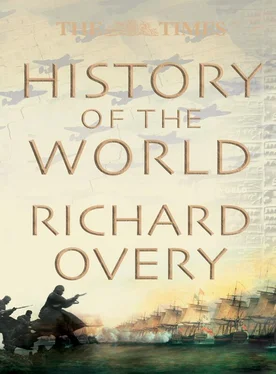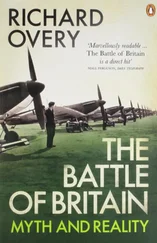To think about the past as something connected by a continuous thread of human activity runs the danger of imposing a false sense of unity, but for much of the earth’s surface, over long periods of time, fundamental change has been absent. Anthropological evidence has for a long time been able to describe practices and beliefs that are clearly connected with a world so distant that it has been transmuted into myth. One hundred human lives laid end-to-end is not very many. To put it another way: it is possible to house an artefact from every major civilization of the past 5,000 years in a single cabinet and to recognize that until the last few hundred years those artefacts—whether a pot, a fertility doll, an arrow-head, a shoe, a coin—bear a remarkable underlying similarity. The recorded history of the world can be read at one level as a unitary experience, a brief 4 percent of the time modern hominids have been evolving, a hundred human lives.
Of course these lives were not the same wherever they were lived. Whatever homologies can be detected between peoples and civilizations, the experience of world history over the past 6,000 years is a series of fractured narratives, divided geographically and segmented by differing cultures, religious practices and political orders. The whole course of world history has been a process of cultural exchange and discovery, of imperial expansion and decline; sometimes links once made were then ruptured again; at other times communication enriched both cultures. In the past 500 years that process of discovering, mapping and understanding the world as a whole has accelerated, but for most previous civilizations the ‘known world’ was only what was immediately known. The modern concept of ‘world history’ which this book encapsulates was meaningless to most human civilizations through most of human history. For large areas of the globe there was no written culture so that ‘history’ survived as myth or folk memory, dating was arbitrary or non-existent, and the world was circumscribed by the very limited geographical reach of particular peoples. Rome was an exception, but even for Romans the known world was centred on the Mediterranean and the barbarous (meaning alien) outside was scarcely understood or valued. China for centuries regarded itself as the centre of the universe, and the outside world, to the extent that it intruded at all, was supposed to revolve like so many blighted planets around the Chinese sun. The history of the world is a very Western idea and it has become knowable only in the last century or so as Europeans and their descendants overseas produced sophisticated archaeological techniques and scholarly skills to unlock many of the remaining secrets of the past. When the English novelist H. G. Wells wrote his famous Outline of History , published in 1920, he was able to do so only on the foundation of an outpouring of new research in the last decades of the 19th century. Wells was preoccupied, he wrote in his introduction, with ‘history as one whole’, and he was one of the first to attempt it.
The more that came to be known about the many civilizations and cultures that made up human history, the more tempting it was, like Wells, to try to see history as a whole and to explain the process of historical change as a uniform one. This ambition had roots in the 19th century, where it was famously attempted by the German thinkers Georg Hegel and his erstwhile disciple Karl Marx, who both suggested that historical change was dynamic, the result of shifting patterns of thought or the transition from one economic system to another, each stage of human development incorporating the best from the past but each an advance on the one before it, until humankind finally reached an ideal society. The 19th-century view, coloured by the remarkable technical progress of the age, was to try to see a purpose behind historical change—not a mere random set of events, or a set of parables or myths to educate the present, but a triumphant account of the ascent of man. Neither Hegel nor Marx was a historian, and they both regarded China as a backwater that had somehow failed to move like the rest of the world. The 20th century witnessed more historically sophisticated attempts to find a unity in world history. The German philosopher Oswald Spengler published just after the First World War two volumes of an ambitious study of the pattern of all world history. Each civilization, Spengler argued, had a natural life-cycle, like any organism, of birth, growth, maturity and death, a run of approximately 1,000 years each. He called his volumes The Decline of the West in order to argue against the optimism of the previous century and to demonstrate that Western civilization, for all its belief that it represented the full flowering of human history, was doomed to go the way of the rest. The British historian Arnold Toynbee thought Spengler’s view of history too schematic, but he produced 10 volumes of A Study of History between 1934 and 1954 in which he too detected a common pattern in all previous civilizations which explained their birth, rise to cultural fruition and eventual collapse. Both Spengler and Toynbee rejected the idea that the purpose of history was the triumph of the West, but they both thought that history could be understood as a single, repeated pattern, from ancient Egypt to the modern West.
Few historians now accept that world history works like this. The rise and fall of civilizations evidently has causes, many of which are explored in the pages that follow. But it does not follow from this that history ought to progress, or that it follows internal laws or patterns of development. History does not move forward entirely blindly, but its progress is more often than not accidental, not patterned, and the circumstances of its development contingent rather than purposive—a product of a particular set of circumstances at a particular time rather than a necessary progress from one stage to the next. The same objection can be raised to the popular idea that there are turning points in history, key battles or events that have determined the course of history. Some events are clearly more important than others. History might now be written differently if the Roman army had not defeated Hannibal at Zama in 202 BC, but this was just one event in a much wider world of human activity, insignificant in India or China of the 3rd century BC. On balance human history moves forward on a broad front, less affected by ‘turning points’ than might be expected. If one set of events had never happened, there would just be a different narrative which would now be accepted as part of the past as readily as any other. History has neither pattern nor purpose. It is simply the record of what has been.
There are nonetheless broad common factors that have shaped the development of human communities wherever they have settled. The most important element has been the continuous and complex relationship between mankind and the natural world. Natural phenomena have defined a great deal of the human story. Until quite recently most natural forces were beyond human capacity to control or mediate or even to understand. Some still remain so. In the spring of 2008 a ferocious cyclone, which laid waste large parts of southern Myanmar, and a powerful earthquake in China, killed at least 150,000 people between them. Natural disasters—earthquakes, tidal waves, volcanic eruptions, soil erosion, rising sea levels, crop failure—have been a constant feature of all history. The shaping of the landscape determined patterns of settlement, forms of husbandry, the possibility of exploration and trade. The seas and rivers have been both barrier and pathway. The siting of cities, artificial additions to the landscape, has been determined by access to river communications, or the existence of a natural harbour, or the natural defensive walls provided by high outcrops of rock or hillside. For the past 5,000 years and the introduction of widespread agriculture, the relationship between population size and food supply has added a further natural factor restricting or enhancing the prospects of particular societies, or creating violent tensions between communities that lived by hunting and those with settled pastoral traditions. This competition is not confined to the ancient past, when, for example, waves of hunters from the plains of Eurasia descended on Europe in the 5th and 6th centuries; the near extermination of the North American buffalo in the 19th century by white hunters, an animal on which some Native American tribal societies depended, opened the way for the vast grain-growing prairie belt and the emasculation of the Native American population.
Читать дальше










